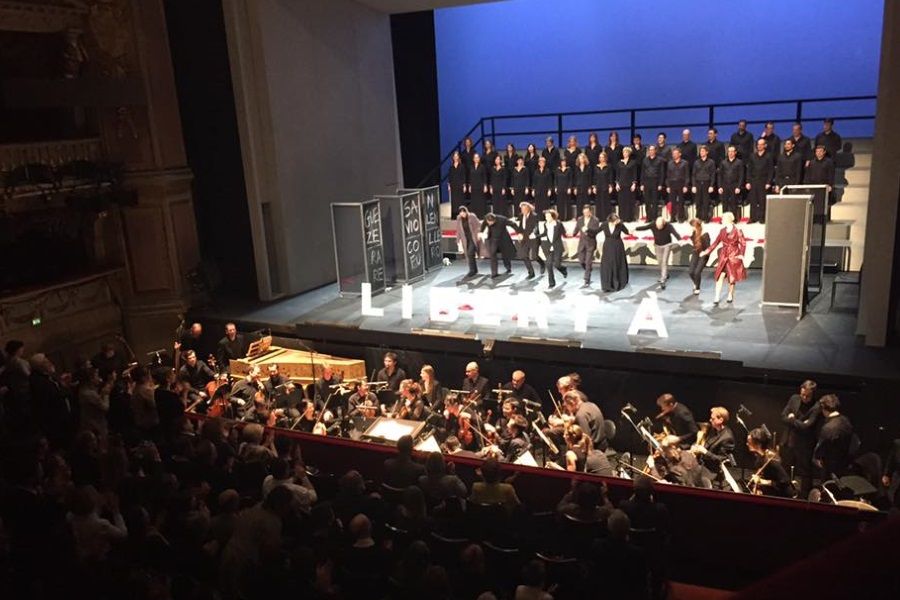Lucio Silla
(W. A. Mozart)
La Seine Musical -Paris (France) - June 2021
Philharmonie de Paris. Cité de la Musique - Paris (France)
Sala Le Volcan. L’Havre - Normandia (France)
Grand Théâtre de Aix en Provence (France)
Theater an der Wien - Vienna (Austria)
Opera Royal de Versailles - Paris (France)
Première 23 April 2016
Lucio Silla is clearly a controversial figure. This opera and all its characters navigate through the ambiguous boundaries between public and private interests. Political rivalries and alliances are entangled with amorous interests, making it hard to separate the public and private realms from the politics of love.
This is an opera that lacks great action. Instead of focusing on the representation of peoples’ acts, it plays out the ongoing decision-making process on the stage. This is the level on which the characters move and express themselves. The protagonists are constantly required to deliberate and reflect on their contradictions in order to make decisions. Doubts arise, one after another, before the action takes place, forming the building blocks of this work.
The tragic component is omitted from this opera, and the catharsis of the characters occurs suddenly (anagnorisis) with the protagonist's transformation, permitting an end to the escalation of violence and revenge in the plot and a "way out” linked to the options available to Silla through his use of power.
According to Seneca, clemency "is a virtue that only suits the dictator, who can use it for his own benefit, which is to maintain his power or recognition”. In this definition, clemency is not so much a virtue as a manifestation of tyrannical power. In other words, it also has negative connotations in the sense that it is the "virtue of a superior over an inferior".
In this case, Silla's decision to pardon and surrender power attracts the admiration and the change of attitude of the characters, winning back his recognition. This admiration thus turns into a "new" popular opinion that repositions the protagonist, reminds him of whom he is, and in doing so, thus facilitates a new order.
Gallery
Critiques
 |









